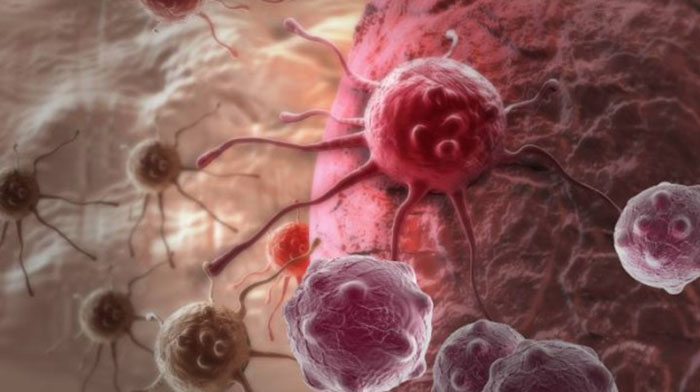UK researchers have hailed the results from early human tests of the drug, known as tisotumab vedotin (TV), after it stopped or shrank tumours in patients with no other options left.
The treatment combines a cancer-killing chemotherapy agent with an antibody, a biological molecule which binds to markers on the surface of cancer cells and causes the drug to be drawn inside.
Not all patients responded to the treatment, but its effects lasted an average of 5.7 months, and up to 9.5 months in some people, in trials on bladder, ovarian, lung, and cervical cancers which were no longer responding to standard drugs.
“What is so exciting about this treatment is that its mechanism of action is completely novel – it acts like a Trojan horse to sneak into cancer cells and kill them from the inside,” lead author Professor Johann de Bono of the Institute of Cancer Research.
“Our early study shows that it has the potential to treat a large number of different types of cancer, and particularly some of those with very poor survival rates.”
New drugs are trialled in patients with advanced forms of cancer because there is a risk that side effects could be as toxic as the disease.
However Professor de Bono said TV had “manageable side effects” and the drug is now moving on to larger, stage two clinical using the drug as a second-line treatment in cervical cancer.
The stage one trial involved nearly 150 patients with different types of drug- resistant cancer and its results have been published in the journal Lancet Oncology.
Patients with bladder cancer and servical cancer were most likely to respond to the treatment, which worked in 27 per cent and 26.5 per cent of cases respectively.
In oesophageal cancer and non-small cell lung cancer 13 per cent of patients saw a benefit, but there was no response in prostate cancers.
However the promising findings mean Dr de Bono’s team from the ICR and Royal Marsden Hospital will also be testing it in bowel and pancreatic cancer.
Pancreatic cancer has some of the worst survival rates of any major form of the disease and experts hope TV could help address a lack of treatments.
“We desperately need innovative treatments like this one that can attack cancers in brand new ways, and remain effective even against tumours that have become resistant to standard therapies,” Professor Paul Workman, chief executive of the ICR, said.
The Independent
More about: trojancancer
















































